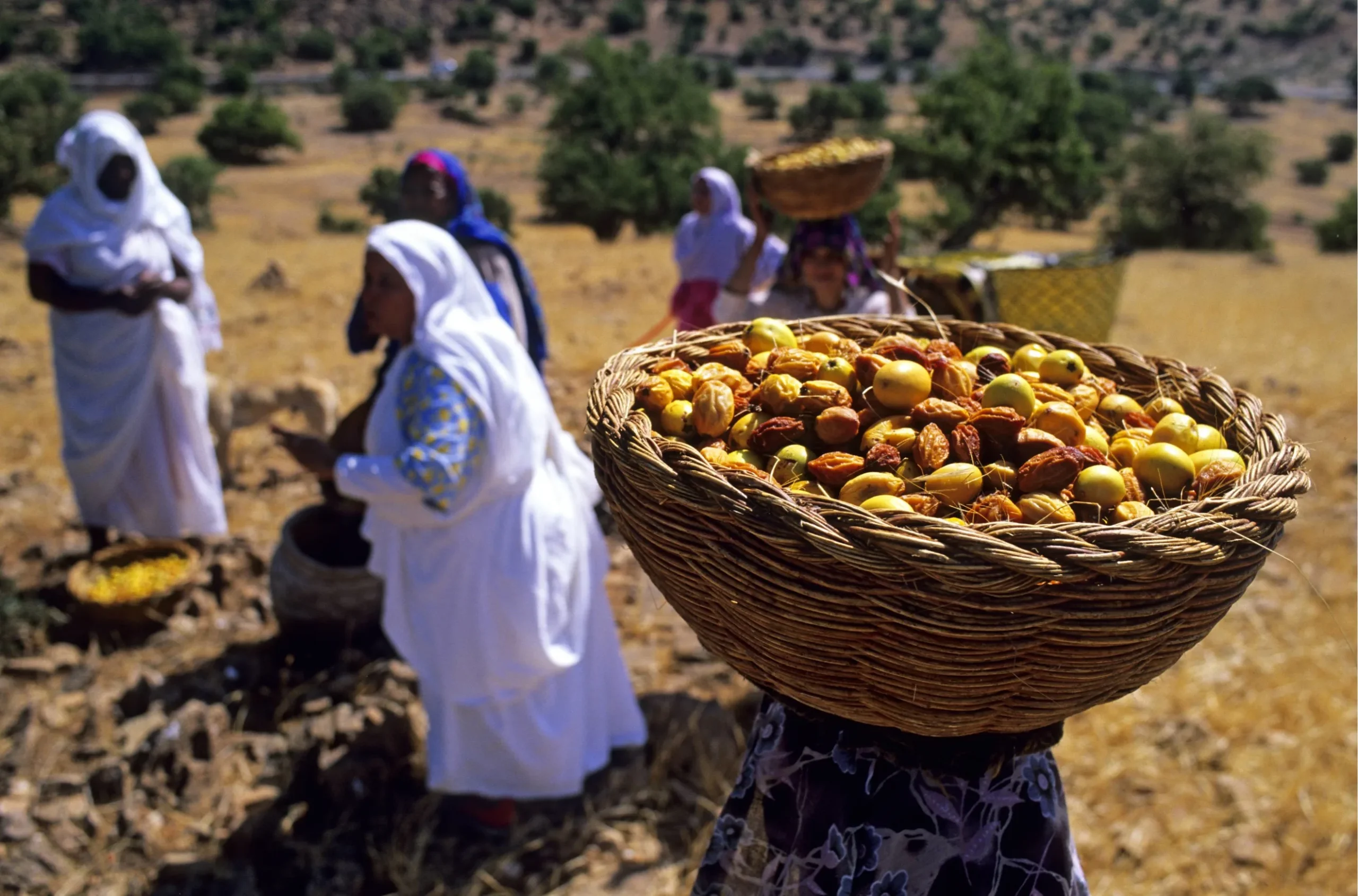Argan oil is more than a beauty trend—it’s a sustainable ingredient that supports both the environment and the communities that produce it. Behind every bottle of pure Moroccan argan oil lies a powerful story of conservation, empowerment, and ethical production.
In this article, we’ll explore the unique characteristics of argan oil, its environmental and social benefits, how it compares to other oils, pricing insights, consumer reviews, and my personal take as a beauty and sustainability blogger.
What Makes Argan Oil Unique?
Argan oil is derived from the kernels of the Argania spinosa tree, which grows almost exclusively in southwestern Morocco. This tree thrives in arid conditions and plays a key role in preventing desertification.
Product Characteristics
- 100% natural and cold-pressed
- Rich in vitamin E, omega-6, and antioxidants
- Suitable for skin, hair, and culinary use
- Non-comedogenic and safe for sensitive skin
- Produced using traditional methods with minimal environmental impact
Learn more about the botanical and nutritional makeup of argan oil here
Environmental Benefits of Argan Oil
Unlike other oil crops that can contribute to deforestation and soil erosion, argan oil production actively protects the environment.
How Argan Trees Protect the Land
- Prevent soil erosion and slow desertification
- Improve biodiversity by offering a habitat to animals and plants
- Help combat climate change by capturing carbon dioxide
According to UNESCO, the Argan Biosphere Reserve is a model for sustainable land use, combining traditional farming with conservation.
Low Environmental Footprint
- Argan oil is cold-pressed, using no chemical solvents
- Trees are harvested without cutting, unlike palm oil
- Waste from the process is composted or reused
How Argan Oil Supports Local Communities
Argan oil is mostly produced by women-led cooperatives in Morocco, empowering thousands of women through fair employment and economic independence.
Key Social Benefits
- Job creation for rural women
- Access to literacy programs and healthcare
- Increased family income and improved living standards
- Cultural preservation through traditional production techniques
You can read more about how argan oil supports women in Morocco.
How It Compares to Other Oils
While coconut and palm oil are mass-produced and contribute to ecological damage, argan oil stands out as a low-impact, high-benefit alternative.
| Feature | Argan Oil | Coconut Oil | Palm Oil |
|---|---|---|---|
| Environmental Impact | Low | Medium | High |
| Fair Trade Support | Strong | Weak | Very Weak |
| Extraction Method | Cold-Pressed | Heat-Processed | Industrial |
| Social Impact | High | Low | Very Low |
Argan oil isn’t just better for your body—it’s better for the planet.
What About the Price?
Because of its sustainable practices and manual production, argan oil is more expensive than mass-market oils—but the cost reflects its values.
Pricing Overview
- Cosmetic argan oil (100ml): $20–$40
- Culinary argan oil (250ml): $25–$60
- Bulk and wholesale pricing available via B2B distributors
For reliable, fair trade argan oil, visit our official Moroccan cooperative at argan-oil.ma
The Benefits: Beauty and Beyond
Customers use argan oil for:
- Moisturizing and softening skin
- Repairing and strengthening hair
- Treating stretch marks and dry patches
- Cooking (culinary oil) for a nutty, antioxidant-rich flavor
- Supporting ethical brands and giving back to local communities
Quality and Originality
Authentic argan oil is:
- Cold-pressed from hand-harvested nuts
- Certified organic by bodies like Ecocert and USDA
- Packaged in glass bottles to preserve its integrity
- Free from additives, chemicals, or artificial fragrances
Be cautious of fake or diluted oils. Always choose certified, traceable argan oil from trusted sources like argan-oil.ma.
What People Are Saying
“Knowing my skincare supports women in Morocco makes me love this oil even more.” — Sofia, UK
“It’s the only oil I trust for both my face and the planet.” — Lina, Sweden
“The quality is amazing, and I appreciate the transparency.” — Jamal, UAE
My Blogger’s Opinion
As a passionate advocate for ethical beauty and sustainable products, I truly believe that argan oil is one of the most meaningful choices you can make. Not only does it nourish your skin and hair naturally, but it also uplifts communities and protects one of the most fragile ecosystems in North Africa.
When I switched to using certified Moroccan argan oil from a local cooperative, I noticed a change—not just in my skin, but in how I connected with the story behind my skincare. It’s beauty with purpose.
Conclusion
Argan oil is more than just a luxury product—it’s a symbol of environmental protection, women’s empowerment, and ethical commerce. Every drop carries the power of tradition, sustainability, and care.
If you’re looking to make a difference through the products you use or sell, argan oil is a smart, responsible choice.
For more information, B2B orders, or to try certified Moroccan argan oil yourself, visit our official site: https://argan-oil.ma



